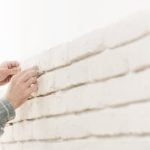Are there any government programs for home improvements? Homeowners often seek ways to make their homes more comfortable, functional, and valuable. Whether it’s upgrading to energy-efficient appliances or making necessary repairs, home improvements can be costly. Fortunately, there are government programs available to provide financial assistance and resources for these projects. In this article, we will explore the benefits, types, eligibility requirements, application process, and success stories of utilizing government programs for home improvements.
Home improvement projects are essential for maintaining a safe and comfortable living environment. By enhancing energy efficiency, increasing property value, and improving overall quality of life, these projects play a crucial role in homeownership. However, the financial burden of home improvements can be daunting for many individuals. That’s where government programs come into play – offering financial assistance and resources to help homeowners achieve their improvement goals.
Through various grants, loans, tax credits, and other types of aid, government programs aim to support homeowners in making necessary upgrades and renovations. These programs not only provide financial relief but also promote sustainable living practices and help stimulate the economy through job creation within the construction industry.
In the following sections of this article, we will delve into the benefits of utilizing government programs for home improvements and provide insight into the types of programs available as well as how to qualify for them.
Benefits of Government Programs for Home Improvements
Utilizing government programs for home improvements offers numerous advantages to homeowners. These programs are designed to provide financial assistance and resources to individuals looking to make necessary upgrades or repairs to their homes. One of the primary benefits of these programs is the ability to access funds that may not be readily available through traditional lending sources.
Government programs for home improvements often provide financial assistance in the form of grants, low-interest loans, or tax credits. These resources can significantly reduce the financial burden of undertaking costly projects, making it more feasible for homeowners to improve their living conditions. Additionally, some programs also offer technical assistance and support in the form of informational workshops, training sessions, and access to expert advice in various home improvement areas.
Another notable benefit of government programs is that they are generally accessible to a wide range of homeowners. While specific eligibility requirements may vary depending on the program and location, many initiatives aim to support low-income families, elderly individuals, veterans, or people with disabilities.
This inclusivity allows a larger portion of the population to benefit from these valuable resources and improve their living conditions. Additionally, these programs may also focus on promoting energy efficiency or environmental sustainability, aligning with broader societal goals beyond just individual home improvement needs.
Types of Government Programs for Home Improvements
When it comes to making improvements to your home, government programs can be a valuable resource in providing financial assistance and support. There are several types of government programs available to homeowners, including grants, loans, and tax credits. These programs aim to help individuals and families make necessary upgrades and renovations to their properties, ultimately improving the overall safety, energy efficiency, and quality of life within the home.
Here are the different types of government programs for home improvements:
- Grants: Government grants are funds provided by federal or state agencies that do not need to be repaid. These grants may be specific to certain types of improvements, such as energy efficiency upgrades or safety enhancements.
- Loans: Government loans for home improvements typically come with low interest rates and favorable terms. These loans can help homeowners cover the costs of major renovations or repairs that they may not be able to afford upfront.
- Tax Credits: Tax credits provide a dollar-for-dollar reduction in the amount of income tax that a person or household would otherwise owe. These credits are often available for specific home improvement projects that focus on environmentally-friendly upgrades.
Each type of program has its own set of eligibility requirements and application process. It’s important for homeowners to thoroughly research each option to determine which program best suits their needs and goals for home improvement projects. By taking advantage of these government programs, individuals can not only enhance the value and functionality of their homes but also contribute to a more sustainable future for their communities.
How to Qualify for Government Programs for Home Improvements
Understanding Eligibility Criteria
To qualify for government programs for home improvements, homeowners must meet specific eligibility requirements set by the respective program. These criteria may include income limits, property ownership, and the nature of the improvement project. For example, some programs prioritize assistance to low-income households, while others focus on energy-efficient upgrades. It is crucial for homeowners to carefully review and understand these eligibility criteria before applying for any government assistance.
Documentation and Proof of Need
In addition to meeting the basic eligibility criteria, applicants are often required to provide documentation and proof of need. This may include financial records, property assessments, contractor estimates, and other relevant paperwork. In some cases, a home inspection or appraisal may also be necessary to determine the extent of the improvement project and validate the need for government assistance. Being prepared with all required documentation can significantly increase a homeowner’s chances of qualifying for a government program.
Improving Chances of Approval
For homeowners looking to improve their chances of approval for government programs, there are several strategies that can be employed.
Firstly, maintaining a good credit score can enhance eligibility for certain loan or grant programs. Additionally, demonstrating a clear plan and budget for the home improvement project can showcase responsibility and organization to program administrators.
Seeking professional guidance from housing counselors or financial advisors can also provide valuable insight into navigating the application process effectively.
Furthermore, staying informed about changes in government policies and programs is essential as it may open up new opportunities for financial assistance. By staying proactive and well-informed about the qualification process, homeowners can maximize their potential to benefit from government programs for home improvements.
Common Home Improvement Projects Covered by Government Programs
When it comes to home improvements, there are several common projects that are often covered by government programs. These programs typically aim to address issues related to energy efficiency, safety upgrades, and minor repairs that are essential for maintaining the overall quality and value of a home. Here are some of the most common home improvement projects that homeowners can seek assistance for through government programs:
- Energy Efficiency Upgrades: Many government programs offer financial assistance or incentives for homeowners looking to make energy-efficient upgrades to their homes. This can include installing solar panels, upgrading to energy-efficient appliances, or improving insulation.
- Safety Upgrades: Government programs often provide funding for safety-related improvements such as installing smoke detectors, carbon monoxide detectors, or security systems.
- Repairs and Renovations: Some government programs also cover minor repairs and renovations that are necessary for maintaining the structural integrity and safety of a home. This can include repairing a leaky roof, fixing plumbing issues, or addressing electrical problems.
These common home improvement projects play a crucial role in not only enhancing the livability and comfort of a home but also in contributing to long-term cost savings and environmental sustainability. By taking advantage of government programs that support these types of improvements, homeowners can ensure that their homes remain safe, efficient, and valuable.
Application Process for Government Programs for Home Improvements
The application process for government programs for home improvements can vary depending on the specific program and the type of improvement being sought. It’s important to thoroughly research and understand the requirements and steps involved in order to increase your chances of approval.
One common step in the application process is providing documentation such as proof of income, property ownership, and project estimates. Different programs may have different requirements, so it’s crucial to carefully review each program’s eligibility criteria and application instructions. Additionally, some programs may require a credit check or other financial assessments.
To begin the application process, homeowners should start by identifying the specific type of improvement they are seeking and then researching which government programs are available to assist with that particular type of project. Once a suitable program is identified, homeowners can typically apply online or through a designated application portal.
It’s important to note that some government programs may have limited funding or specific application periods, so it’s essential to stay up-to-date on deadlines and any changes to the application process. Seeking assistance from a housing counselor or knowledgeable professional can also be helpful in navigating the application process for government programs for home improvements.
| Government Program | Application Process |
|---|---|
| Energy Efficiency Grants | Online applications through designated portal |
| Home Repair Loans | Submission of project estimates and financial documentation |
| Tax Credits for Safety Upgrades | Documentation proving completion of eligible projects |
Success Stories of Homeowners Who Benefitted From Government Programs
Many homeowners have successfully utilized government programs for home improvements, experiencing positive outcomes and significant benefits. One such example is the Smith family, who were able to make energy-efficient upgrades to their home through a government grant. The Smiths saw a substantial decrease in their utility bills and contributed to reducing their carbon footprint, all while saving money on the initial installation costs.
In another case, the Garcia family received a low-interest loan from a government program to repair their roof after a severe storm. Without this financial assistance, the Garcias would have struggled to afford such an essential repair. The government program not only helped them maintain the safety and integrity of their home but also provided peace of mind during a stressful time.
Additionally, the Patel family participated in a tax credit program for installing safety upgrades in their home. By taking advantage of this opportunity, they were able to ensure the security and protection of their property and loved ones without feeling overwhelmed by the associated expenses. These success stories demonstrate how government programs for home improvements can make a significant difference in the lives of homeowners.
Resources for Finding Government Programs for Home Improvements
Government programs for home improvements offer various benefits that can make a significant difference for homeowners. One of the most significant advantages is the financial assistance and resources provided by these programs. Whether it’s through grants, low-interest loans, or tax credits, these programs can help offset the costs associated with essential home improvement projects.
In addition to financial assistance, government programs also often provide access to valuable information and resources. This can include guidance on energy-efficient upgrades, safety measures, and general home maintenance. By utilizing these resources, homeowners can make informed decisions about their improvement projects and ensure they are meeting industry standards and requirements.
Another key benefit of government programs for home improvements is the overall positive impact on the community. By supporting homeowners in making necessary improvements to their properties, these programs contribute to the overall quality of housing in a given area. This can lead to increased property values, improved neighborhood aesthetics, and enhanced safety and livability for residents.
| Benefits | Details |
|---|---|
| Financial Assistance | Grants, low-interest loans, tax credits |
| Access to Information and Resources | Guidance on energy-efficient upgrades, safety measures, home maintenance |
| Positive Impact on Community | Increased property values, improved neighborhood aesthetics, enhanced safety |
Conclusion
In conclusion, government programs for home improvements can provide valuable financial assistance and resources to homeowners looking to enhance their properties. By utilizing these programs, individuals can benefit from grants, loans, tax credits, and other forms of support to fund a variety of home improvement projects. From energy efficiency upgrades to safety improvements and repairs, there are numerous opportunities for homeowners to improve their living spaces with the help of government programs.
It is important for homeowners to familiarize themselves with the specific eligibility requirements for each program and to understand the application process. By doing so, they can increase their chances of qualifying for and successfully utilizing government assistance for their home improvement needs. Additionally, researching available resources and organizations that offer information on government programs can be a valuable first step in exploring these opportunities.
In light of the potential benefits that government programs for home improvements offer, it is highly encouraged for readers to consider exploring these options for their own properties. The positive impact and outcomes experienced by other homeowners who have utilized these programs serve as examples of how such initiatives can contribute to overall home value and quality of life. Ultimately, it is well worth considering the possibility of using government programs to achieve your desired home improvements.
Frequently Asked Questions
What Is the Ohio Housing Assistance Grant Program?
The Ohio Housing Assistance Grant Program is a state-funded initiative designed to provide financial assistance to low-income individuals and families in Ohio who are struggling to afford safe and decent housing. The program offers grants to help with the down payment, closing costs, and rehabilitation of properties.
Who Is Eligible for Government Home Improvement Grant in Wisconsin?
In Wisconsin, eligible individuals for government home improvement grants are typically low-income homeowners who need assistance making necessary repairs or renovations to their homes. This may include elderly or disabled homeowners, families with children, or other qualifying individuals who meet specific income requirements set by the state.
Who Is Eligible for Government Home Improvement Grant in TN?
Eligibility for government home improvement grants in Tennessee varies depending on the specific program or funding source. Generally, low-income homeowners, veterans, senior citizens, and individuals with disabilities may be eligible for assistance with home repairs or improvements. Income limits and other criteria will apply for each program.

I’m thrilled to have you here as a part of the Remodeling Top community. This is where my journey as an architect and remodeling enthusiast intersects with your passion for transforming houses into dream homes.





